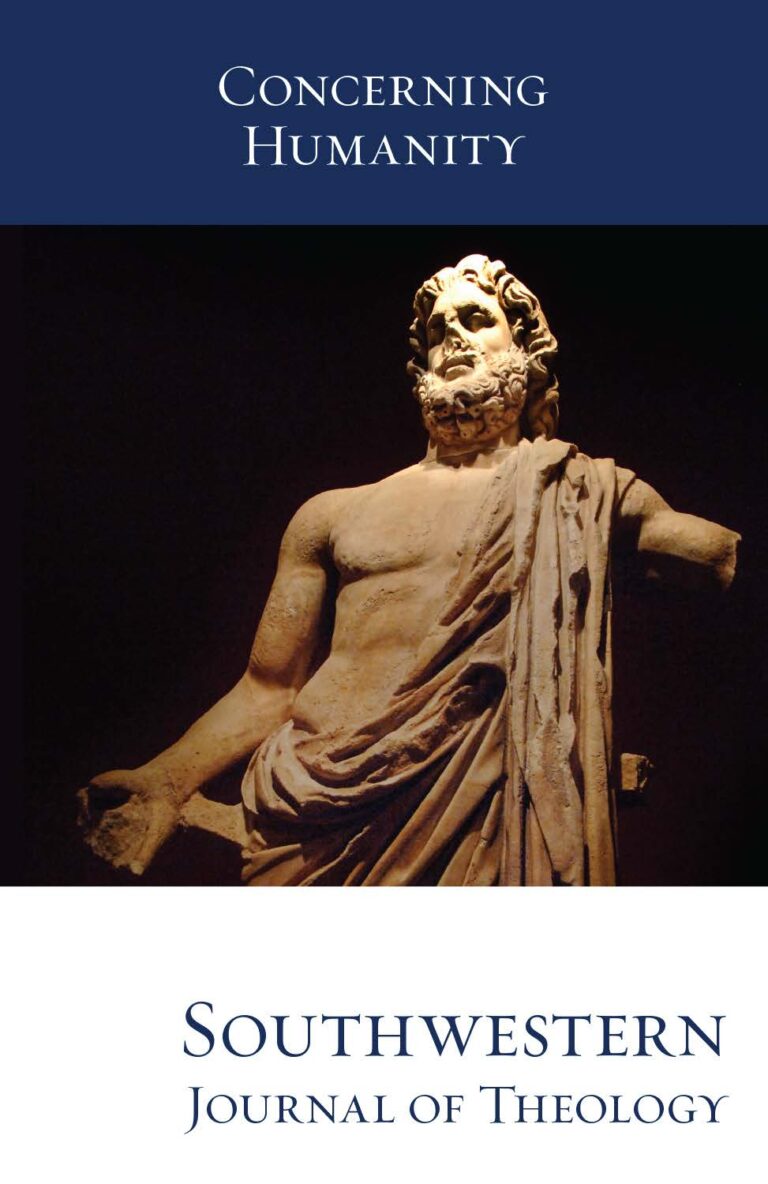
Concerning Humanity
Southwestern Journal of Theology
Volume 59, No. 1 – Fall 2016
Managing Editor: W. Madison Grace II
Edited by Michael Northcott and Peter Scott. London: Routledge, 2014. 180 pages. Paperback, $44.95.
To date, there has been little formal work done to connect systematic theology to environmental ethics using traditional doctrinal headings. Systematic Theology and Climate Change is a collection of essays that approach Christian theology to discern how it intersects with climate change.
The goal of the volume is “to at least persuade the reader of the fruitfulness of systematic theology in developing and undergirding the Christian response to anthropogenic climate change.” (12) After the introductory chapter, the book includes nine additional chapters treating a different locus of doctrine. In Chapter 2, Timothy Gorringe begins the discussion of the Trinity. He argues for the necessity of the Trinity, but moves quickly to outline the relational nature of the Trinity with creation to inspire action against climate change. Niels Henrik Gregerson unpacks a Christology for climate change in the next chapter. The incarnation of deity and his participation in the created order should lead Christians to reenact the redemptive nature of Christ’s life before the world, drawing Christians into actions that mitigate climate change as acts of neighborly love. Chapter 4 is a connection between climate change and the doctrine of the Holy Spirit. Michael Northcott finds connections between Yahweh and animistic beliefs in the sun god, which he uses to explain the radiative power of the Holy Spirit. The Anthropocene period, according to Northcott, is caused by the Enlightenment abandonment of wonder in nature—a denial of the spiritual nature of God and his Spirit’s work in the world.
In the fifth chapter, Celia Deane-Drummond modifies the concept of creatio ex nihilo, proposing to adopt creatio ex amore. God creates all things, but the focus becomes the purpose of creating instead of the nature of creating. This shift enables Deane-Drummond to emphasize the loving Creator-creation relationship, which inspires right living. Chapter 6 presents the nature of creatures in the created order, rejecting anthropocentrism and focusing on God’s relationship with non-human, living creatures. This essay by Rachel Muers attempts to promote a deeper level of sympathy with the non-human creatures. In the seventh chapter Peter Scott delves into a theological discussion of the human relationship with creation. His emphasis is on understanding the human ability to disrupt natural processes in hopes of inspiring a curtailing of human freedom. Chapter 8 unpacks the doctrines of sin and salvation. According to Neil Messer, sin is a radical distortion of the human relationship with God and the rest of creation. Salvation is thus the renewal of both relationships, which must include ecologically friendly living. He asserts that to understand ourselves as sinners also enables us to understand ourselves as saved by God; that salvation should lead to repentance and hope. In the ninth chapter, Tamara Grdzelidze examines the doctrine of the church: the church exists to emphasize the restoration of relationships of creatures to God and to each other through the Eucharist. Thus the mission of the church is to embody and encourage the unity of all creation in anticipation of the coming salvation of all things by God. This mission will be carried out not just ecclesially, but politically through activism and lobbying. Chapter 10 discusses eschatology in greater detail than the previous chapters. Stefan Skrimshire emphasizes the cosmic hope in eschatology over personal hope. Eschatology is framed as a motivation to political action against climate change. Skrimshire, however, limits the divine participation in the renewal of all things because it allows forgiveness for present ecological sins and undermines motivation for climate action. Thus, eschatology motivates bringing in a desired order instead of inspiring future hope of divine restoration.
Systematic Theology and Climate Change is intended to bring voices from different backgrounds together to do systematic theology for climate change. Using a different author for each chapter leads to unevenness between the chapters. Many of the essays are informative, but taken as a whole, the project lacks cohesion. Additionally, although each chapter deals with a different theological heading, many seem to overlap with different perspectives on the value of creation, the human role in creation, and the fate of the created order. In some cases, as with the treatment of ecclesiology, the focus of the chapter seems to be somewhere besides the title doctrine. Also, notably absent from the volume is any appreciable treatment of the gospel. The chapter on sin and salvation assumes a general salvation while the chapter on Christology ignores the concepts of atonement and redemption. These seem to be significant oversights for a systematic theology, even one emphasizing climate change. To miss the essence of Christianity—Christ crucified and resurrected— points toward a methodological difficulty with this approach.
Environmental ethics is a theological enterprise, particularly for a faithful Christian. This volume brings together significant voices to relate systematic theology to climate change. There are some revealing points of application, but the book falls short of demonstrating a model approach to uniting concerns of climate change with traditional doctrinal headings of systematic theology. There is room for further development along these lines, but it may be helpful for future treatments to focus on the major doctrines that influence systems of environmental ethics. Such an approach would have improved this volume significantly.





